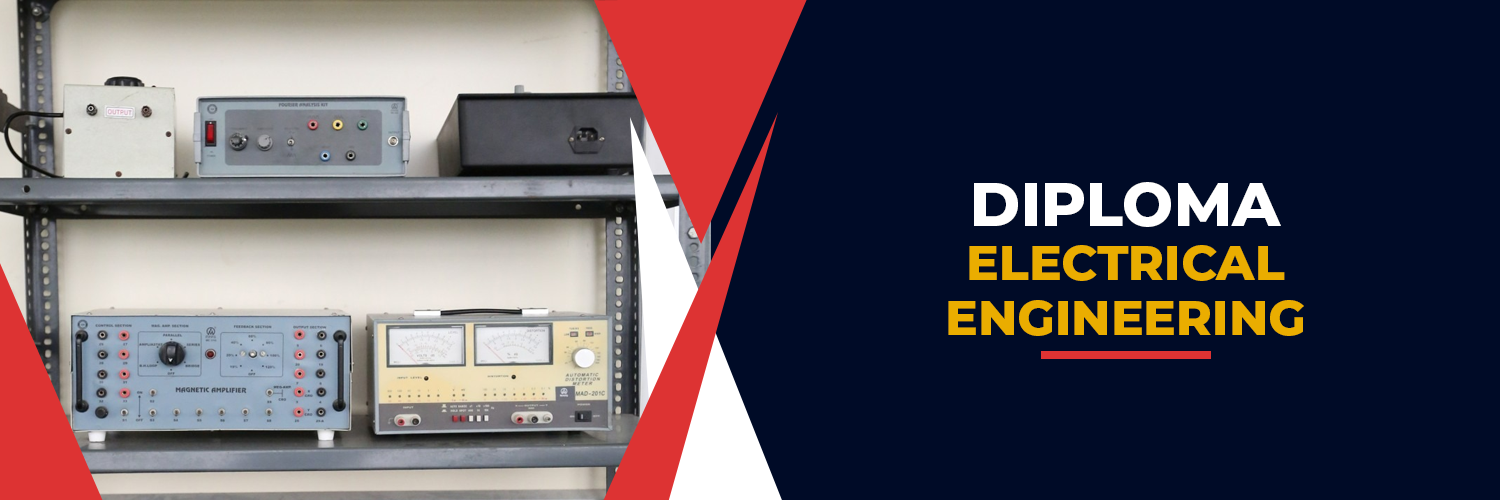![]()
Ambalika Institute of Management and Technology offers a diploma in Electrical Engineering. It is the best Electrical Engineering diploma course in Lucknow.The Diploma in Electrical Engineering program, affiliated with the Board of Technical Education, Uttar Pradesh (BTEUP) and governed by the All India Council for Technical Education (AICTE), is designed to provide students with a comprehensive understanding of electrical engineering concepts and their practical applications. The program covers key areas such as electrical circuits, power systems, electrical machines, control systems, and renewable energy systems.
This diploma program is ideal for students seeking to pursue a career in electrical engineering by acquiring both theoretical knowledge and hands-on skills. Graduates of this program are well-equipped to work in industries such as power generation, electrical equipment manufacturing, automation, and control systems, among others. The curriculum blends core electrical engineering principles with modern technological advancements, making it a highly sought-after program for students interested in the electrical and energy sectors.
Key features of the Diploma in Electrical Engineering program:
- Duration: 3 years (typically divided into six semesters)
- Mode: Full-time, Regular
- Accreditation: The program is affiliated with BTEUP and governed by AICTE, ensuring that students receive quality education that meets industry standards.
- Focus Areas: Electrical Circuits, Power Systems, Electrical Machines, Control Systems, Electronics, and Renewable Energy.
Program Educational Outcomes (PEOs)
PEO 1: Use a variety of tools and approaches to demonstrate the duties of an electrical supervisor in a variety of sectors to ensure the plant operates as efficiently as possible.
PEO 2: Use technical knowledge and abilities to design, run, test, and maintain electrical installations and machinery.
PEO 3: Through lifelong learning in the context of technology advancements, they will be able to improve their technical and entrepreneurial skills.
Program Outcomes (POs)
PO 1: Basic and Discipline specific knowledge: Apply knowledge of basic mathematics, science and engineering fundamentals and engineering specialization to solve the engineering problems.
PO 2: Problem analysis: Identify and analyse well-defined engineering problems using codified standard methods.
PO 3: Design/ development of solutions: Design solutions for well-defined technical problems and assist with the design of systems components or processes to meet specified needs.
PO 4: Engineering Tools, Experimentation and Testing: Apply modern engineering tools and appropriate technique to conduct standard tests and measurements.
PO 5: Engineering practices for society, sustainability and environment: Apply appropriate technology in context of society, sustainability, environment and ethical practices.
PO 6: Project Management: Use engineering management principles individually, as a team member or a leader to manage projects and effectively communicate about well-defined engineering activities.
PO 7: Life-long learning: Ability to analyse individual needs and engage in updating in the context of technological changes.
Program Specific Outcomes (PSOs)
PSO 1: The ability to manage, test, and maintain a variety of electrical installations, machinery, and power system components.
PSO 2: The capacity to do energy audits, create electrical cost estimates, and decipher and apply electrical drawings.
PSO 3: The potential to carry out professional duties while paying attention to socially useful endeavors, safety, ethical standards, energy conservation, and environmental factors.
PSO 4: The capability to use their technical and soft talents to tackle electrical engineering difficulties.


